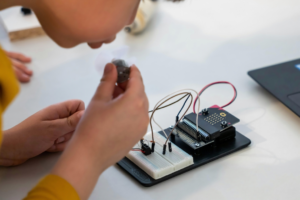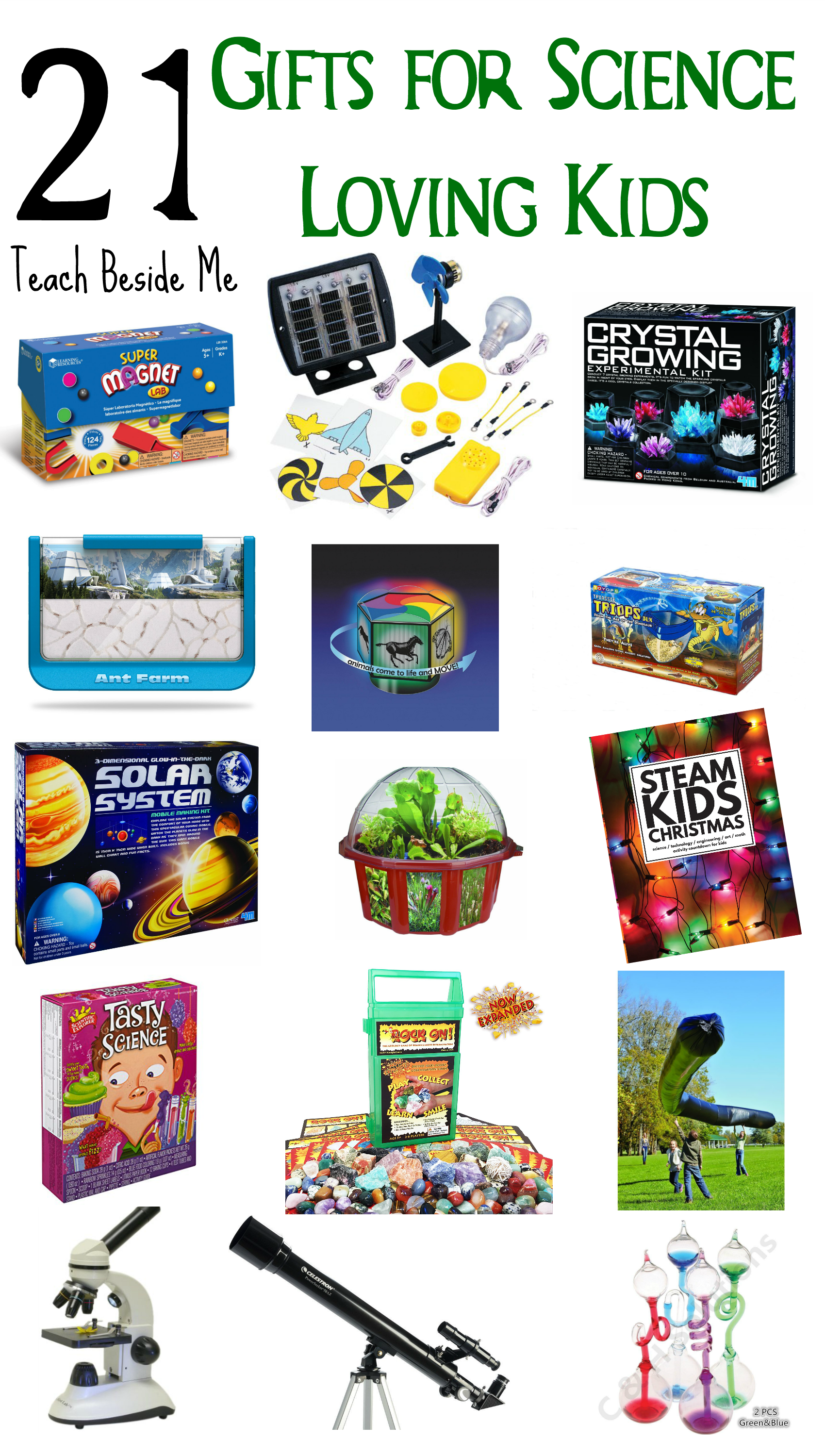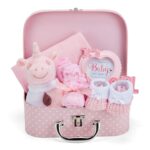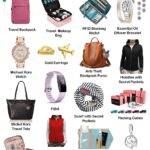Science gifts for kids spark curiosity and foster a love for learning. They provide hands-on experiences that make science fun.
Science-themed presents engage children in interactive learning. Kits like chemistry sets or robotics introduce them to fundamental scientific principles. Microscopes and telescopes open up worlds of microscopic organisms and distant galaxies. These gifts encourage critical thinking and problem-solving skills. Educational games and puzzles make learning enjoyable.
Books about famous scientists and experiments inspire young minds. Science gifts not only entertain but also educate. They lay the foundation for future scientific exploration. By nurturing curiosity early, these gifts help kids develop a lifelong passion for discovery. Choose science gifts to make learning an exciting adventure.
In this guide, explore exciting science gifts for kids that spark curiosity, encourage learning, and make science fun and engaging!
Introduction To Science Gifts
Science gifts for kids are exciting and educational. These gifts make learning fun. They can inspire curiosity and creativity. Kids love experimenting and discovering new things. Science gifts are perfect for young minds. They can spark a lifelong interest in science.
Importance Of Educational Toys
Educational toys play a crucial role in development. They help kids learn essential skills. Science toys teach problem-solving and critical thinking. They promote logical reasoning and creativity. These toys can also improve fine motor skills.
Educational toys can be interactive. This makes learning more engaging. Kids can explore new concepts hands-on. Science toys often involve building or experimenting. This encourages active learning.
Benefits Of Science-based Play
Science-based play offers many benefits. It stimulates curiosity and imagination. Kids learn about the world around them. They can explore concepts like chemistry, physics, and biology.
Science play can also boost confidence. Kids feel proud when they solve problems. They learn perseverance through trial and error. These activities can also improve focus and attention to detail.
Some benefits include:
- Enhanced problem-solving skills
- Improved critical thinking
- Increased curiosity
- Better understanding of scientific concepts
Stem Kits for Science Enthusiasts
STEM kits are great for kids who love science and technology. These kits make learning fun and hands-on. Kids can explore different fields like coding, robotics, and chemistry.
Popular Stem Kits
There are many popular STEM kits available. Here are some favorites:
| STEM Kit | Age Group | Features |
|---|---|---|
| Snap Circuits | 8+ | Build circuits with snap-together parts. |
| LEGO Mind storms | 10+ | Build and program robots. |
| littleBits | 8+ | Easy-to-use electronic building blocks. |
| KiwiCo STEM Crates | 5-16 | Monthly science and engineering projects. |
How Stem Kits Encourage Learning
STEM kits encourage learning in many ways:
- Hands-On Learning: Kids learn by doing, not just reading.
- Problem-Solving Skills: They face challenges and find solutions.
- Creativity: Kids build and create their own projects.
- Critical Thinking: They think deeply about how things work.
These kits also make learning fun and exciting. They help kids see the real-world applications of science and technology. This can spark a lifelong interest in STEM fields.
Robotics Kits as Engaging Science Gifts for Kids
Robotics kits are a great way to introduce children to science and technology. These kits offer hands-on learning experiences, making education fun and interactive. Kids can build, program, and control their own robots, which helps them understand complex concepts in a simple way.
Top Robotics Kits For Kids
Here are some of the best robotics kits for young learners:
-
- LEGO Boost Creative Toolbox
This kit is perfect for kids aged 7-12. It includes over 840 LEGO pieces, a motor, and sensors. Children can build five different robots, each with unique functions.
-
- Wonder Workshop Dash Robot
Suitable for ages 6 and up, this robot is easy to program using a tablet or smartphone. It comes with various accessories to enhance the learning experience.
-
- Makeblock mBot
Ideal for kids aged 8 and above, this kit includes all the parts needed to build a simple robot. It also comes with graphical programming software to make coding fun and easy.
Skills Developed With Robotics
Using robotics kits, children develop a wide range of skills:
- Problem-solving: Kids learn to identify problems and find solutions.
- Critical thinking: Building and programming robots require logical reasoning.
- Creativity: Kids can design and customize their robots.
- Technical skills: They gain hands-on experience with electronics and coding.
- Teamwork: Many kits encourage collaborative projects, fostering teamwork.
| Robotics Kit | Age Range | Key Features |
|---|---|---|
| LEGO Boost Creative Toolbox | 7-12 years | 840+ pieces, motor, sensors |
| Wonder Workshop Dash Robot | 6+ years | Tablet/smartphone programming, accessories |
| Makeblock mBot | 8+ years | Graphical programming software |
Chemistry Sets for Hands-on Learning
Chemistry Sets are fantastic science gifts for kids. They spark curiosity and love for science. With a chemistry set, kids can learn through hands-on experiments. These kits offer a fun way to understand the world around them.
Safe Chemistry Sets
Safety is the most important factor in a chemistry set. Many sets are designed for kids, ensuring they are safe to use. Look for kits with non-toxic chemicals and clear instructions. Adult supervision is always recommended during experiments.
| Brand | Age Group | Safety Features |
|---|---|---|
| National Geographic | 8-12 years | Non-toxic, clear instructions |
| Thames & Kosmos | 10-15 years | Safety goggles, non-toxic |
Fun Experiments To Try
Fun experiments make chemistry exciting for kids. Here are some easy experiments to try:
- Volcano Eruption: Mix baking soda and vinegar. Watch the fizz!
- Magic Milk: Add food coloring to milk. Use soap to create patterns.
- Invisible Ink: Write with lemon juice. Reveal with heat.
These experiments are simple and safe. They teach basic chemistry concepts in a fun way. Kids will enjoy making discoveries while learning.
Astronomy Tools for Budding Stargazers
Astronomy tools make perfect science gifts for kids. These tools spark curiosity about the universe. They help children explore the night sky, learn about stars, and understand celestial bodies. Let’s dive into two exciting astronomy tools: beginner telescopes and learning about the stars.
Beginner Telescopes
Beginner telescopes are great for young astronomers. They are user-friendly and provide clear views of the moon and planets. These telescopes are lightweight and easy to set up. Here are some features to look for:
- Portable design
- Simple assembly
- Adjustable focus
- Durable build
A good beginner telescope can show craters on the moon. It can also reveal Jupiter’s moons and Saturn’s rings. These views excite kids and encourage further exploration.
Learning About The Stars
Learning about the stars can be fun and educational. There are many tools and resources available. Star charts and apps help kids identify constellations. Educational books explain the life cycle of stars. Here are some popular resources:
| Resource | Description |
|---|---|
| Star Charts | Visual maps of the night sky |
| Mobile Apps | Interactive star maps with real-time data |
| Books | Kid-friendly guides to stars and constellations |
Star charts and apps show where stars are located. These tools make stargazing a fun activity. Educational books provide detailed information. They help kids understand what they see through their telescopes. Here are some recommended books:
- “The Stars: A New Way to See Them” by H.A. Rey
- “National Geographic Kids First Big Book of Space” by Catherine D. Hughes
- “There’s No Place Like Space: All About Our Solar System” by Tish Rabe
These resources make learning about the stars engaging and interactive. They are perfect for young explorers eager to learn.

Biology Kits for Science Gifts for Kids
Biology Kits are perfect for young scientists eager to explore the natural world. These kits provide hands-on learning and ignite curiosity. Kids can discover the magic of life sciences with fun, interactive tools.
Exploring Nature
Biology Kits often include activities that encourage exploring nature. Kids can collect samples from their backyard. Leaves, soil, and insects become fascinating subjects. They can use these samples in their experiments. This helps them understand the environment better.
Here are some common activities in Biology Kits:
- Plant growth experiments
- Insect observation
- Soil analysis
- Leaf identification
These activities teach children about ecosystems. They learn how different elements interact in nature. It makes science fun and engaging.
Microscopes For Kids
Many Biology Kits come with microscopes for kids. These microscopes are designed to be easy to use. They have simple controls and sturdy build. Kids can examine tiny details of plants, insects, and other samples.
A typical kids’ microscope kit may include:
| Item | Description |
|---|---|
| Microscope | Basic model with easy controls |
| Slides | Pre-prepared and blank for creating new slides |
| Collection Tools | Tweezers, pipettes, and vials for samples |
| Guidebook | Instructions and experiment ideas |
Using a microscope helps kids learn about cells and microorganisms. They can see the unseen world, sparking their imagination. It’s a powerful tool for young biologists.
Engineering Toys for Creative Problem Solving
Engineering toys are perfect for sparking curiosity in kids. These toys offer hands-on learning and foster creativity. They help children understand the basics of engineering concepts. Let’s explore some fantastic options in this category.
Building Blocks
Building blocks are classic engineering toys that never go out of style. They provide endless possibilities for creativity and learning. Kids can build anything they imagine, from simple structures to complex designs. These toys improve spatial awareness, problem-solving skills, and fine motor skills.
- LEGO Sets: These sets range from easy to complex, catering to all ages.
- Magnetic Tiles: These tiles stick together, offering a new way to build.
- Wooden Blocks: Eco-friendly and durable, perfect for younger kids.
Building blocks encourage kids to think critically and plan ahead. They also help develop patience and perseverance.
Circuit Kits
Circuit kits introduce kids to the world of electronics. These kits are user-friendly and educational. Kids learn to create circuits that power lights, sounds, and even motors. This hands-on experience is both fun and enlightening.
| Circuit Kit | Features |
|---|---|
| Snap Circuits | Easy snap-together parts, beginner-friendly, over 100 projects. |
| LittleBits | Magnetic connections, modular pieces, creativity-focused. |
| Smart Circuits | Build circuits and games, includes microcontroller. |
Circuit kits are excellent for teaching basic electrical engineering concepts. They also help kids understand how everyday electronics work.

Choosing the Right Science Gifts for Kids
Choosing right science gifts for kids can be exciting and challenging. The perfect gift should spark curiosity and foster learning. It should also match the child’s age and interests.
Age-appropriate Toys
Picking an age-appropriate toy is crucial. Younger kids need simple toys. These toys should be safe and easy to understand. For example:
- 3-5 years: Colorful building blocks and simple science kits.
- 6-8 years: Basic chemistry sets and beginner robotics kits.
- 9-12 years: Advanced electronics kits and detailed model building.
Older kids can handle more complex kits. These can involve coding or detailed experiments. Age-appropriate toys ensure safety and enjoyment.
Balancing Fun And Education
Science gifts for kids should balance fun and learning. Kids engage more with toys they enjoy. Look for gifts that teach while being entertaining.
For example, consider these options:
- Interactive Science Kits: These kits include hands-on experiments and activities.
- Educational Games: Games that challenge the mind and teach new concepts.
- STEM Toys: Toys that focus on Science, Technology, Engineering, and Math.
Balancing fun and education makes learning enjoyable. Kids stay interested and learn effectively.
| Age Group | Recommended Toys |
|---|---|
| 3-5 years | Building blocks, simple science kits |
| 6-8 years | Basic chemistry sets, beginner robotics kits |
| 9-12 years | Advanced electronics kits, detailed model building |
Frequently Asked Questions
What Is A Toy In Science?
A toy in science often refers to a simple, educational tool or model used to demonstrate scientific principles.
Why Are Science Kits Good For Kids?
Science kits foster curiosity and creativity in kids. They enhance problem-solving skills and boost hands-on learning. Kids gain practical knowledge and develop a love for science. These kits provide interactive, educational fun, making complex concepts easy to understand.
Why Is Science Fun For Kids?
Science is fun for kids because it sparks curiosity and encourages hands-on experiments. They love discovering new things and solving mysteries. Engaging activities make learning enjoyable and memorable.
What Is Science For Little Kids?
Science for little kids is exploring the world through fun experiments, observing nature, and asking questions. It involves learning basic concepts in a playful and engaging way. Kids discover how things work and develop curiosity about their surroundings. Science fosters critical thinking and problem-solving skills early on.
Conclusion
Choosing science gifts for kids sparks curiosity and fosters learning. These gifts inspire young minds and make education fun. From chemistry sets to robotics kits, the options are endless. Encourage exploration and creativity with these engaging presents. Make science a delightful adventure for the children in your life.







